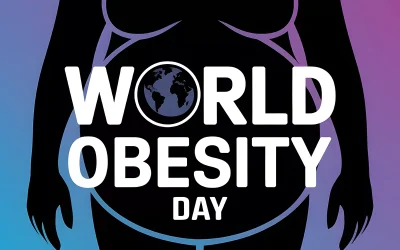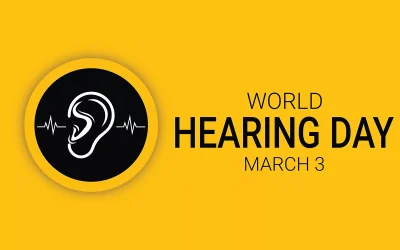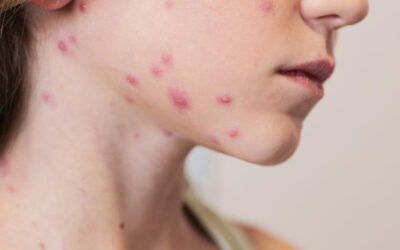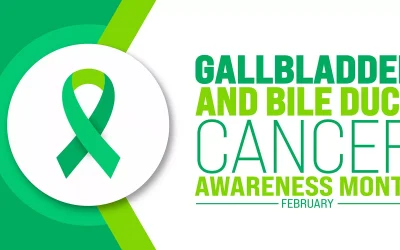World Mosquito Day 2025: Mosquito-Borne Diseases and How to Prevent Them
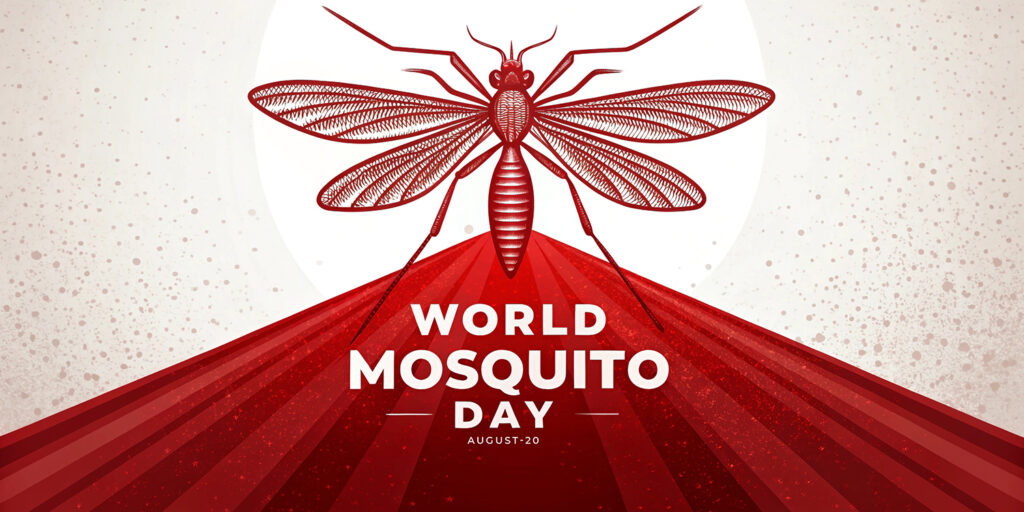
Mosquitoes may be small creatures, but the diseases they carry have a notable impact on global health. From dengue and malaria to chikungunya and Zika fever, mosquito-borne illnesses continue to affect millions every year, especially in tropical countries such as India. Despite medical advances, prevention remains the most effective defence against these diseases. World Mosquito Day is observed to highlight the importance of mosquito control, community awareness, and timely treatment. In this article, we will discuss why World Mosquito Day 2025 matters, the threats posed by mosquito-borne diseases, and simple ways to reduce the risk through individual and collective action.
Table of Contents
ToggleWorld Mosquito Day 2025: Why It’s Observed and Why It Still Matters
World Mosquito Day, observed every year on 20th August, marks a historic moment in medical history as it commemorates the day Sir Ronald Ross discovered that malaria is transmitted by the bite of female Anopheles mosquitoes. This breakthrough in 1897 laid the foundation for targeted mosquito control strategies that are still in use today.
More than just a historical observance, World Mosquito Day serves as an urgent reminder of the continuing threat posed by mosquito-borne diseases such as dengue, malaria, chikungunya, and Zika virus. These illnesses still affect millions globally and remain a significant public health concern in India, particularly during the monsoon season.
In 2025, the focus remains on raising awareness, improving prevention, and promoting early diagnosis. Despite advancements such as the malaria vaccine, consistent efforts in public education, environmental control, and timely medical care are essential to prevent outbreaks. The day calls for collective action, from individuals to institutions, to reduce mosquito breeding and support community health initiatives that can save lives.
Understanding Mosquito-Borne Diseases
Mosquitoes are responsible for spreading several serious illnesses, especially in tropical countries like India. Some of the most common mosquito-borne diseases include:
- Dengue: Transmitted by Aedes aegypti mosquitoes; causes high fever, severe body ache, rash, and low platelet count. Common during the monsoon season.
- Malaria: Spread by Anopheles mosquitoes; symptoms include recurring fever, chills, sweating, and in some cases, organ complications. Can be life-threatening if untreated.
- Chikungunya: Also carried by Aedes mosquitoes; leads to joint pain, rash, and long-lasting fatigue.
- Zika fever (in specific regions): Typically mild, but concerning for pregnant women as it may cause birth defects.
Key facts about mosquito transmission:
- Mosquitoes inject viruses or parasites into the bloodstream through their bites.
- Aedes mosquitoes bite during the day and breed in clean, stagnant water (e.g., water tanks, flower pots, coolers).
- Anopheles mosquitoes bite at night and breed in more natural or rural water sources.
- These diseases are seasonal, often peaking during and after the monsoon, making prevention and early detection especially important.
Understanding how mosquitoes spread disease is essential to developing effective prevention and control strategies: both at the personal and community level.
When to See a Doctor for Mosquito-Borne Illnesses
While some mosquito-borne infections may begin with mild symptoms, they can escalate quickly and lead to serious complications if left untreated. Knowing when to seek medical care can make a significant difference in outcomes, especially during peak mosquito seasons.
Here are symptoms that require prompt medical attention:
- High fever that persists for more than two days, especially if unresponsive to basic medication
- Severe body aches or joint pain, which could signal dengue or chikungunya
- Bleeding from gums, nose, or under the skin, suggesting possible dengue-related complications
- Extreme fatigue, confusion, or drowsiness, which may indicate advanced malaria or dehydration
- Abdominal pain, persistent vomiting, or difficulty breathing
- Very low platelet count detected during routine blood tests
Early diagnosis is crucial for managing these illnesses effectively. Individuals experiencing warning signs, especially in areas prone to dengue or malaria, should consult a general medicine specialist or visit a hospital equipped to handle infectious diseases.
Dengue and Malaria Prevention: What Works
Preventing mosquito-borne diseases like dengue and malaria requires a combination of personal protection, community-level efforts, and in some cases, vaccination. These strategies are most effective when practiced consistently, especially before and during the monsoon season. Here’s what works:
- Vaccination:
- The malaria vaccination (RTS,S/AS01) has shown promising results in children in high-risk areas.
- While there’s no vaccine for dengue widely available in India, research and trials are ongoing.
- Eliminating breeding grounds:
- Empty and clean water containers regularly, such as coolers, pots, and trays.
- Scrub surfaces to remove mosquito eggs.
- Cover water storage units and ensure proper drainage around the house.
- Unclog drains and gutters to eliminate stagnant water.
- Use larvicides in tanks that cannot be emptied.
- Preventing Mosquito Bites:
- Use repellents: Apply creams or sprays containing DEET, picaridin, or lemon eucalyptus oil.
- Install barriers: Use window screens, door nets, and mesh curtains.
- Dress smartly: Wear light-coloured, full-sleeved clothing and long trousers.
- Be mindful of peak biting times:
- Aedes mosquitoes (dengue/chikungunya) bite during the day
- Anopheles mosquitoes (malaria) bite during the night
- Wearing protective clothing:
- Long sleeves and full-length trousers help reduce exposed skin, especially during early morning and evening hours.
- Community fogging and spraying:
- Municipal mosquito control teams often conduct fogging to target adult mosquitoes in outbreak-prone zones.
Mosquito Prevention in the Community
Preventing mosquito-borne diseases is not just an individual responsibility – it requires collective action. Community health programmes play a vital role in reducing the mosquito population and raising awareness about disease prevention.
Key areas where public health efforts make a difference:
- Environmental sanitation drives: Local authorities often organise campaigns to clean stagnant drains, clear garbage, and spray insecticides in high-risk areas.
- Larval source management: Public health teams identify breeding sites and treat them with safe larvicides to prevent mosquito reproduction.
- Health education and outreach: Community volunteers and healthcare workers raise awareness about how to prevent mosquito bites and when to seek medical help for symptoms of fever or body aches.
- School and workplace initiatives: Awareness sessions and hygiene audits in schools, colleges, and offices ensure that prevention messaging reaches a wider audience.
- Surveillance and rapid response: Monitoring disease outbreaks and mosquito densities helps authorities take swift action in case of a spike in dengue or malaria cases.
At Graphic Era Hospital, partnerships with local authorities and support for community-based mosquito control initiatives are part of our larger commitment to preventive healthcare.
How Graphic Era Hospital Helps Prevent and Manage Mosquito-Borne Diseases
At Graphic Era Hospital, prevention and patient education are just as important as treatment. Here’s how the hospital supports individuals and communities in managing mosquito-borne diseases effectively:
- Seasonal awareness campaigns: Sharing information on dengue and malaria risks during high-incidence periods through posters, outreach, and hospital OPD engagement.
- Community education drives: Participating in local events and schools to educate people on mosquito prevention, symptom recognition, and when to seek medical help.
- Patient counselling sessions: Offering tailored advice to patients and families on preventing reinfection and protecting others.
- Digital outreach: Using social media and hospital platforms to disseminate WHO-aligned tips on mosquito control and bite prevention.
- Public partnerships: Collaborating with local health departments to support fever camps, screening camps, and awareness events.
Through a combination of clinical expertise and preventive outreach, Graphic Era Hospital remains committed to reducing the burden of mosquito-borne illnesses in Uttarakhand and beyond.
Spreading the Message: What to Share This World Mosquito Day
Graphic Era Hospital recognises that public awareness plays a critical role in preventing mosquito-borne diseases. Effective messaging, whether shared through social media, health camps, or school programmes, can prompt timely action and reinforce healthy behaviours.
Here are a few lines that can be used in awareness materials or digital campaigns:
- “One bite can change a life. Prevent, protect, and act.”
- “Mosquitoes don’t wait. Neither should you.”
- “Stop the bite: start the fight against mosquito-borne diseases.”
- “Dengue and malaria can’t thrive where awareness survives.”
- “Protect your home, your family, your community—from mosquitoes.”
- “World Mosquito Day: August 20—Remind, Respond, Resist.”
These lines aim to promote personal responsibility, community action, and a shared goal: reducing the burden of mosquito-related illnesses through timely prevention and education.
Take Action This World Mosquito Day
Mosquito-borne diseases are preventable, but only when action replaces complacency. World Mosquito Day 2025 is not just a date on the calendar; it’s a call to take responsibility, raise awareness, and protect those most at risk. Whether it’s cleaning up stagnant water, using mosquito repellent, or helping a neighbour understand the symptoms of dengue, every step counts. Community support, public participation, and timely medical intervention can prevent unnecessary illness and save lives.
To learn more about mosquito prevention, get tested for fever-related illnesses, or consult a general physician, call 18008897351 to book an appointment at Graphic Era Hospital.
Frequently Asked Questions
When is World Mosquito Day and why is it celebrated?
World Mosquito Day is observed on August 20 each year to mark the discovery by Sir Ronald Ross that mosquitoes transmit malaria. It highlights the importance of mosquito control and awareness to prevent mosquito-borne diseases such as dengue and malaria.
What is the World Mosquito Day 2025 theme?
The official World Mosquito Day theme for 2025 has not yet been released by the World Health Organization (WHO), but it typically focuses on raising awareness about prevention, early detection, and public health action against mosquito-borne illnesses.
What are the symptoms of mosquito-borne diseases like dengue and malaria?
Common symptoms include fever, chills, fatigue, joint pain, nausea, vomiting, rashes, and in some cases, bleeding or confusion. If any of these signs appear—especially during the monsoon season – consult a doctor immediately.
What are the most effective mosquito prevention and control methods?
Mosquito control methods include using repellents, wearing full-sleeved clothing, covering water storage containers, installing window screens, and cleaning stagnant water regularly. Community spraying and larvicide use are also common strategies.
How can I prevent mosquito bites during high-risk seasons?
To prevent mosquito bites, use repellents on exposed skin, sleep under nets, wear protective clothing, and avoid outdoor activity during peak biting hours—daytime for dengue (Aedes) and nighttime for malaria (Anopheles).
Is there a vaccination available for mosquito-borne diseases?
A malaria vaccination is now available for children in certain high-risk areas. Research is ongoing for a dengue vaccine, though it is not widely available in India at present.
What is World Mosquito Eradication Day and how is it different?
While not an official observance, World Mosquito Eradication Day is often informally used to highlight the goal of eliminating mosquitoes as disease vectors. It overlaps in purpose with World Mosquito Day, focusing on long-term strategies to reduce mosquito populations.
Can you share any World Mosquito Day quotes or slogans for awareness?
Yes, here are a few:
- “Mosquitoes don’t wait. Neither should you.”
- “Stop the bite—start the fight.”
- “World Mosquito Day: August 20—Remind, Respond, Resist.”
Such World Mosquito Day quotes and slogans help spread public health messages and encourage mosquito prevention.
How does Graphic Era Hospital help with mosquito-borne disease care?
The hospital offers access to fever clinics, general medicine specialists, and rapid diagnostics for diseases such as dengue and malaria. It also participates in community health programmes that support public awareness and mosquito prevention.
By Specialities
- Bariatric Surgery
- Cancer Care
- Cardiology
- Dental
- Dermatology
- Diabetes & Endocrinology
- Endocrinology and Diabetes
- ENT (Ear Nose Throat)
- Eye Care
- Gastroenterology
- Haematology
- Health Awareness
- Health Care
- Health Tips
- Hematology
- Hepatology
- Internal Medicine
- Mental Health and Behavioural Sciences
- Metabolic
- Neonatology
- Nephrology
- Neurology
- Nutrition & Dietetics
- Obstetrics & Gynaecology
- Oncology
- Ophthalmology
- Orthopaedics
- Paediatric
- Physiotherapy & Rehabilitation
- Plastic and Reconstructive Surgery
- Psychology
- Pulmonology
- Rheumatology
- Spine
- Urology
Recent Posts
Need expert medical advice?
Share your details and our healthcare specialists will reach out to assist you.
By proceeding, you acknowledge and agree to our Privacy Policy, Terms of Use, and Disclaimer.
